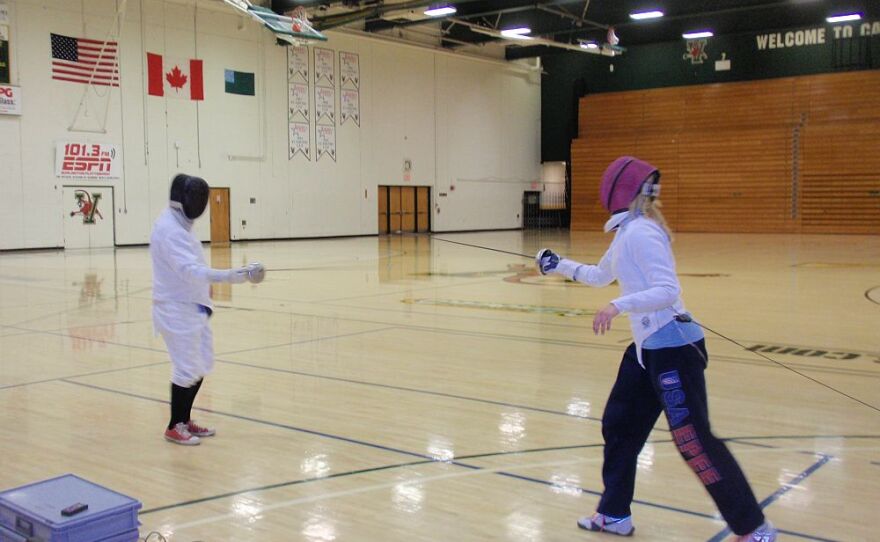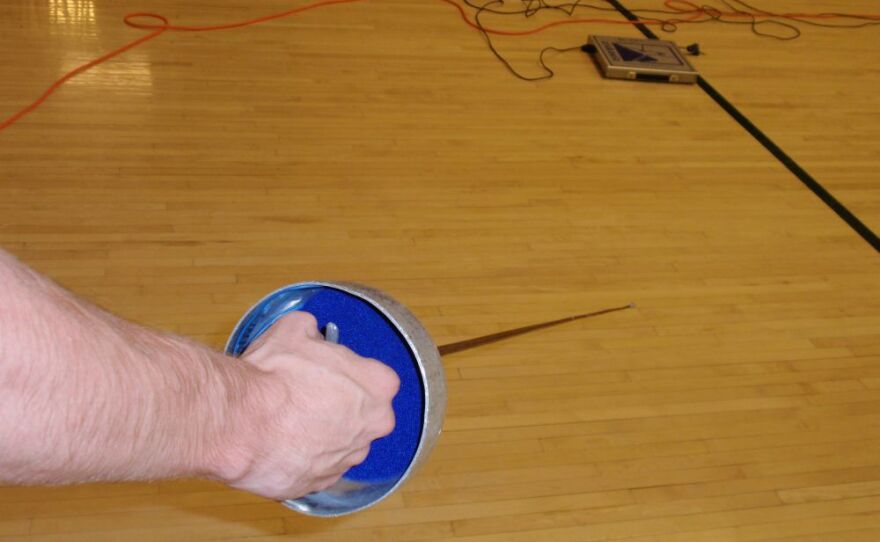Viveka Fox, head coach of the Vermont Fencing Alliance, has been involved in the sport for 38 years and it still hasn’t gotten old.
“Every bout is interesting and new to me,” she says, “because every opponent is different. I see every opponent as a problem to be solved. I love the strategy part of the game. But I also feel it gives me a great full-body workout.”
Fox calls fencing “a one-on-one battle between two people using a weapon. “
There are three types of weapons that are used in modern Olympic-style fencing: foil, epee and sabre.
But, it’s how you move your body that Fox says is the key to excelling at the sport. “A lot of people think you’re going to do fancy things with the sword. That’s not what it’s about. It’s about learning to move your body and to position yourself so that your close enough so that if your opponent is open you can make a quick attack, but not so close that he can hit you.
“So the first thing we teach people is body movement and we spend a lot of time on moving back and forth. Fencing is done on a long, narrow strip and developing an explosive lunge where you push off your back leg and really propel yourself towards your opponent is important.”
Fox knows of what she speaks. She recently returned from the USA Fencing National Championships held in Columbus, Ohio with a 5th place finish in her age group. That means she has qualified for the women's foil team that will compete at the Veteran World Championships in Hungary in October.







